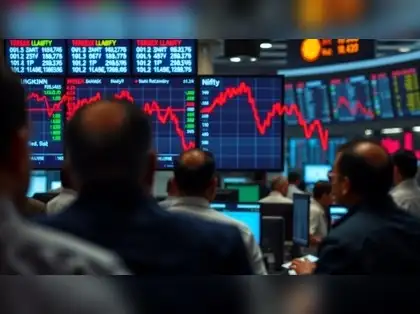American consumers are feeling uneasy about the economy, and it’s happening quickly. A new report shows that consumer confidence in the US has dropped a lot in April, hitting its lowest point in five years. The consumer confidence index fell by 7.9 points to 86 — the lowest since May 2020, which was when the COVID-19 pandemic first started.
This is the fifth month in a row that confidence has dropped, and it shows that people are increasingly worried about the future of the economy. A big reason for this fear is due to tariffs, which are taxes on imported goods. According to the report from The Conference Board, people are talking more about tariffs than ever before in surveys. Recently, President Trump imposed a 10% tax on most imports and a massive 145% tax on many Chinese goods. These tariffs have raised concerns about prices going up, and that’s affecting how people feel.
About half of Americans are now worried that the economy might enter a recession, which is a time when money is tight for everyone. This fear is affecting how people think about jobs, how much they spend, and their income. A specific part of the report shows that expectations for income and jobs dropped by 12.5 points, the lowest in over 13 years. Economists worry that any score below 80 might mean a recession is coming.
Many people also think hiring may slow down, with nearly one in three expecting this to happen soon. This is similar to what was seen during the Great Recession in April 2009. We’ll have a clearer picture soon, as the government is set to release reports on economic growth and job data this week. Some analysts say hiring could fall significantly, which would further hurt consumer confidence.
Consumers are not just worried; they are changing how they spend. More people are holding off on big purchases like cars and homes due to high prices and rising mortgage rates. Interest in taking vacations abroad has dropped to 16.4%, down from 24.1% last December. The number of people dining out has also noticeably decreased in April, marking one of the largest declines on record.
Interestingly, both high-income earners over $125,000 and those aged 35 to 55 showed huge drops in confidence, indicating that economic worries affect people across all income levels.
Financial markets are also responding to the dip in confidence. Stock prices went up and down sharply earlier this month, making things feel less stable. Although the markets have improved slightly, they are still down overall for the year: the S&P 500 is down 6%, the Dow Jones has dropped 5%, and the Nasdaq is off by 10% in 2025.
If consumers keep losing confidence, it could slow down economic growth. As Carl Weinberg, a chief economist, said: “Nervous consumers spend less.” If people become more anxious and cut back on spending, it will hurt the economy even more.




Leave a Reply